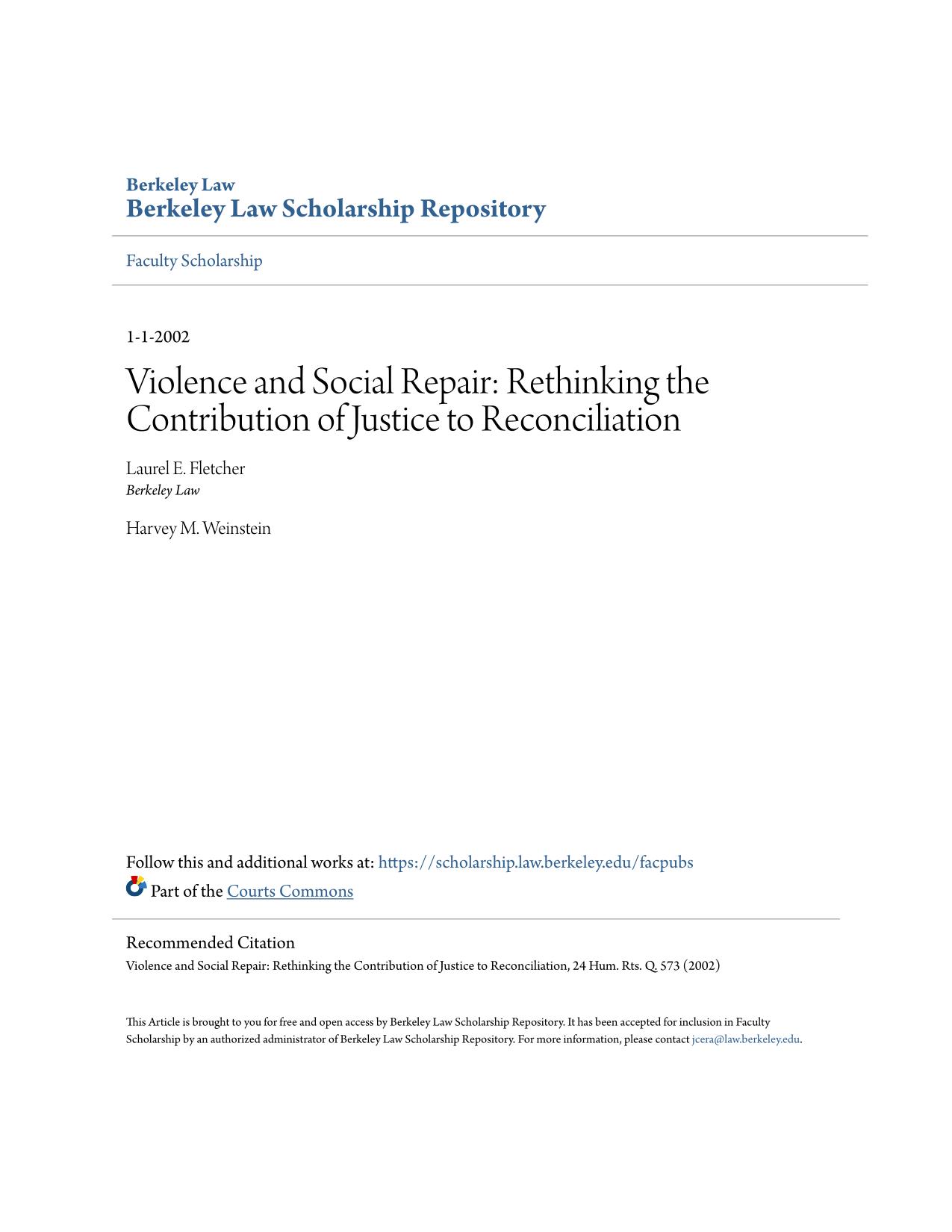Violence and Social Repair: Rethinking the Contribution of Justice to Reconciliation
Download PDFSummary
This article explores limitations of international criminal trials that assign accountability for mass atrocities to individuals, and offers a model to understand the contribution of trials to social reconstruction. In the last decade, there has been a burgeoning interest in the question of how countries recover from episodes of mass violence or gross human rights violations. This interest has focused on the concept of transitional justice, a term used to describe the processes by which a state seeks to redress the violations of a prior regime. Despite the fact that military and political leaders who ordered or directed mass terror generally have evaded accountability for their deeds, justice in the form of criminal trials has been the rallying cry of many who seek to repair the injury individuals and communities have sustained as a result of these heinous acts. As dictatorships and repressive regimes fell in Latin America in the 1980s and 1990s, human rights scholars and advocates pressed states to initiate domestic criminal proceedings against the notorious intellectual authors of mass terror and their faithful subordinates.
